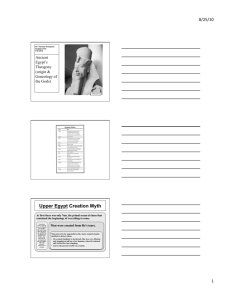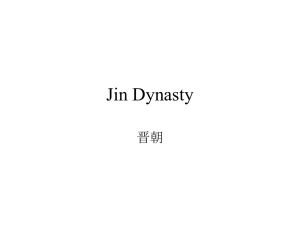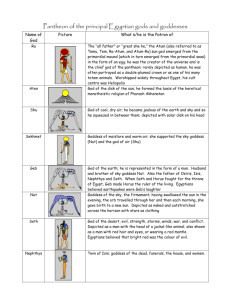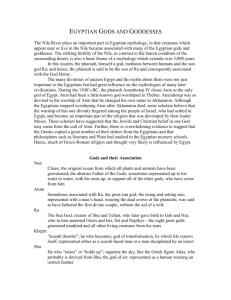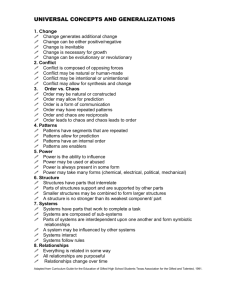Support m terial a Egyptian creation myth
advertisement
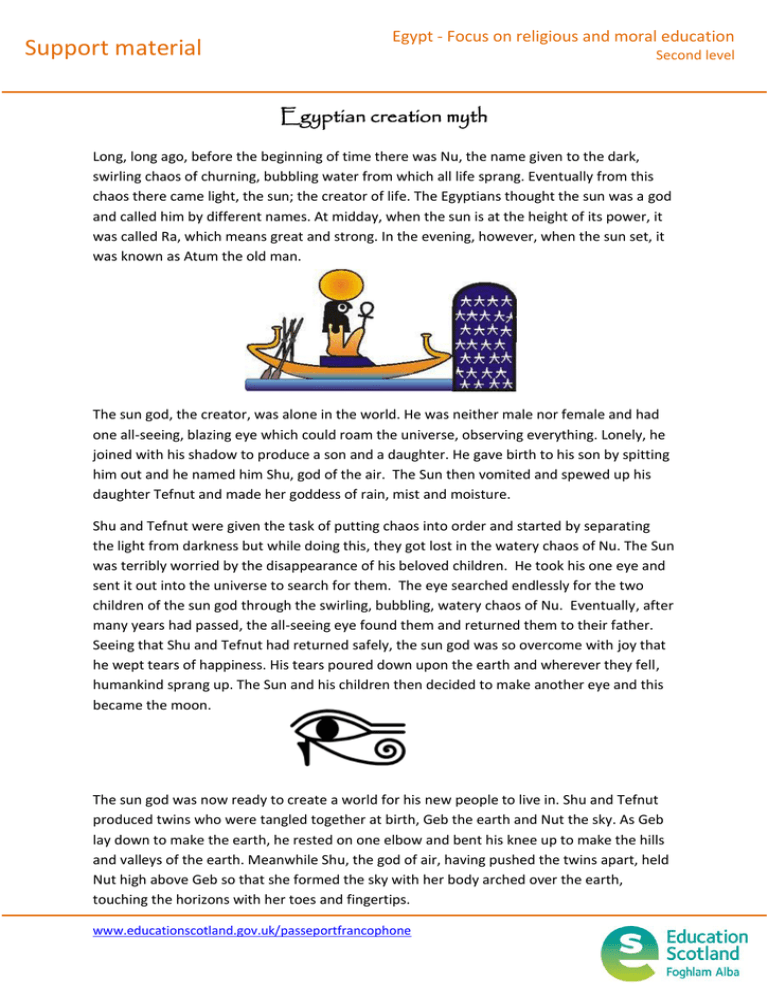
Support material Egypt - Focus on religious and moral education Second level Egyptian creation myth Long, long ago, before the beginning of time there was Nu, the name given to the dark, swirling chaos of churning, bubbling water from which all life sprang. Eventually from this chaos there came light, the sun; the creator of life. The Egyptians thought the sun was a god and called him by different names. At midday, when the sun is at the height of its power, it was called Ra, which means great and strong. In the evening, however, when the sun set, it was known as Atum the old man. The sun god, the creator, was alone in the world. He was neither male nor female and had one all-seeing, blazing eye which could roam the universe, observing everything. Lonely, he joined with his shadow to produce a son and a daughter. He gave birth to his son by spitting him out and he named him Shu, god of the air. The Sun then vomited and spewed up his daughter Tefnut and made her goddess of rain, mist and moisture. Shu and Tefnut were given the task of putting chaos into order and started by separating the light from darkness but while doing this, they got lost in the watery chaos of Nu. The Sun was terribly worried by the disappearance of his beloved children. He took his one eye and sent it out into the universe to search for them. The eye searched endlessly for the two children of the sun god through the swirling, bubbling, watery chaos of Nu. Eventually, after many years had passed, the all-seeing eye found them and returned them to their father. Seeing that Shu and Tefnut had returned safely, the sun god was so overcome with joy that he wept tears of happiness. His tears poured down upon the earth and wherever they fell, humankind sprang up. The Sun and his children then decided to make another eye and this became the moon. The sun god was now ready to create a world for his new people to live in. Shu and Tefnut produced twins who were tangled together at birth, Geb the earth and Nut the sky. As Geb lay down to make the earth, he rested on one elbow and bent his knee up to make the hills and valleys of the earth. Meanwhile Shu, the god of air, having pushed the twins apart, held Nut high above Geb so that she formed the sky with her body arched over the earth, touching the horizons with her toes and fingertips. www.educationscotland.gov.uk/passeportfrancophone Egypt - Focus on religious and moral education Support material Second level The ancient people of Egypt often painted Geb and Nut with Shu pushing between them. In paintings, Nut’s skin is usually blue like the sky sprinkled with stars and Geb’s skin is mudbrown with green hair representing the grass and plants of the earth. In time, Geb and Nut produced four children, two gods and two goddesses who represent the four forces of life: Osiris, god of fertility; Isis, the mother goddess; Set, god of evil and Nephthys, goddess of death. Isis Set www.educationscotland.gov.uk/passeportfrancophone Nephthys
